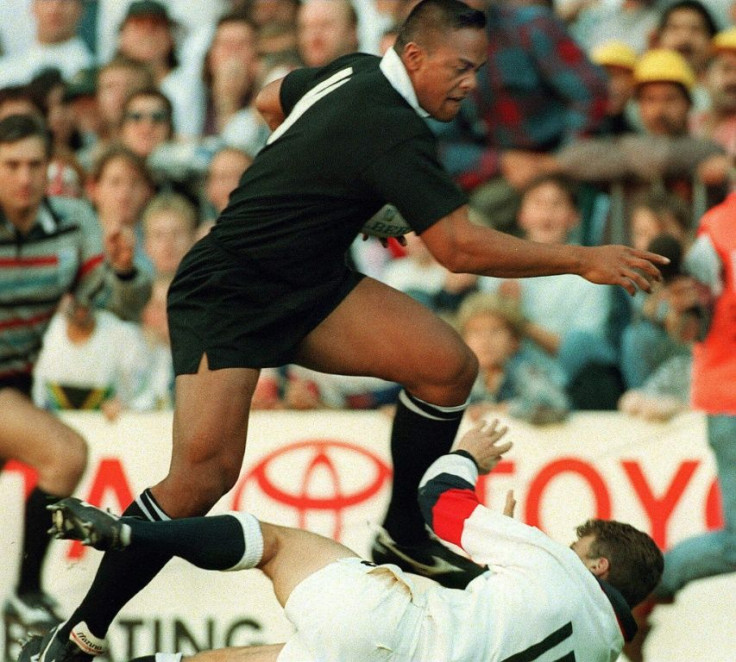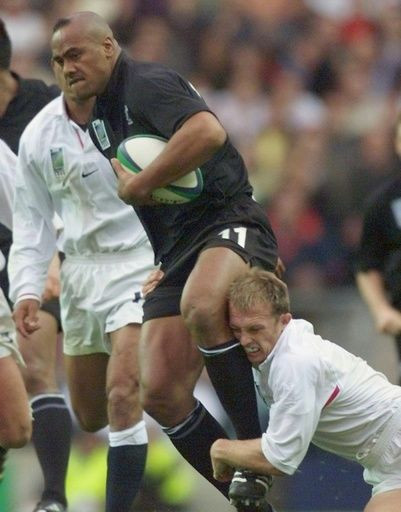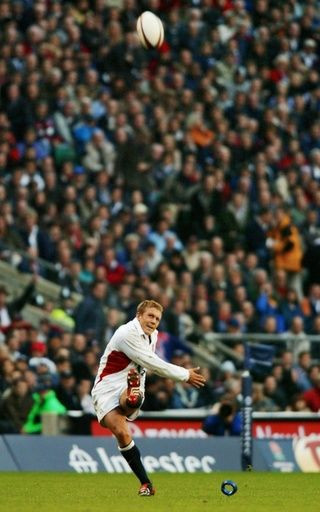Lomu, A Russian Prince And A Draw: England V NZ Classics

England face reigning champions New Zealand in a World Cup semi-final in Yokohama on Saturday.
The teams have met 41 times since their first encounter in 1905, the All Blacks dominating the fixture with 33 wins to England's seven and one draw.
New Zealand have won all three of their World Cup matches, meaning England will need to make history on Saturday to progress to the final of Japan 2019.
AFP Sport looks back at some of their most outstanding clashes:
'Freak' Lomu's match
The late Jonah Lomu was the star with a four-try haul in the 1995 World Cup semi-final, the only other occasion the two sides have met in the last four.
Lomu had the first of his quartet just 70 seconds into the match, famously running over -- not around -- both Tony Underwood and Mike Catt on his way to the line in a dazzling display that saw admiring England captain Will Carling label the powerhouse wing "a freak".

New Zealand won the game in Cape Town comfortably 45-29 but went on to lose the final to South Africa, with wing James Small doing a remarkable defensive job to contain Lomu.
Lomu strikes again
At the next World Cup in 1999, Lomu inflicted more pain upon England -- this time on home turf at Twickenham -- as the All Blacks pulled away to win their pool match 30-16.
The scores were level at 16-16 when Lomu received the ball and promptly shrugged off the attempts of four England defenders to bring him down before crossing for a try that turned the match New Zealand's way.

England went on to lose to South Africa 44-21 in the quarter-final whereas the All Blacks fell 43-31 in a famous semi-final to a rampant French team.
The 26-26 draw
In 1997, the two teams played out the only draw between them at Twickenham. England raced into an astonishing 20-3 lead, with a brilliant David Rees try followed by back-rows Lawrence Dallaglio and Richard Hill both crossing the All Blacks' line.
New Zealand, however, hit back thanks to tries from backs Walter Little and Andrew Mehrtens, and England eventually needed fly-half Paul Grayson's late penalty to salvage a famous draw.
Wilkinson full set
Fly-half Jonny Wilkinson scored 21 points including a 'full set' of a try, two conversions, three penalties and a drop goal, as England recorded a win in November 2002 seen as a major staging post on the way to their World Cup triumph in Australia the following year.
England were well ahead at 31-14 after a stunning burst of 14 points early in the second half of a match where an early try from back-row forward Lewis Moody was followed by two more from Wilkinson and wing Ben Cohen.
The All Blacks though responded with two late scores, including Lomu's second try of the match, before an England side coached by World Cup winning boss Clive Woodward held on to win 31-28.
Obolensky's match
The match played between the two teams in January 1936 at Twickenham will forever be known as "Obolensky's match."
Alexander Obolensky, a Russian prince educated at Oxford University, marked his England debut with two of the best tries scored at Twickenham, his second featuring an extraordinary diagonal right to left run by the 20-year-old wing.
Just four years later, however, Obolensky became the first England international to be killed during the Second World War when the Royal Air Force pilot lost his life in a training accident.
© Copyright AFP 2024. All rights reserved.





















